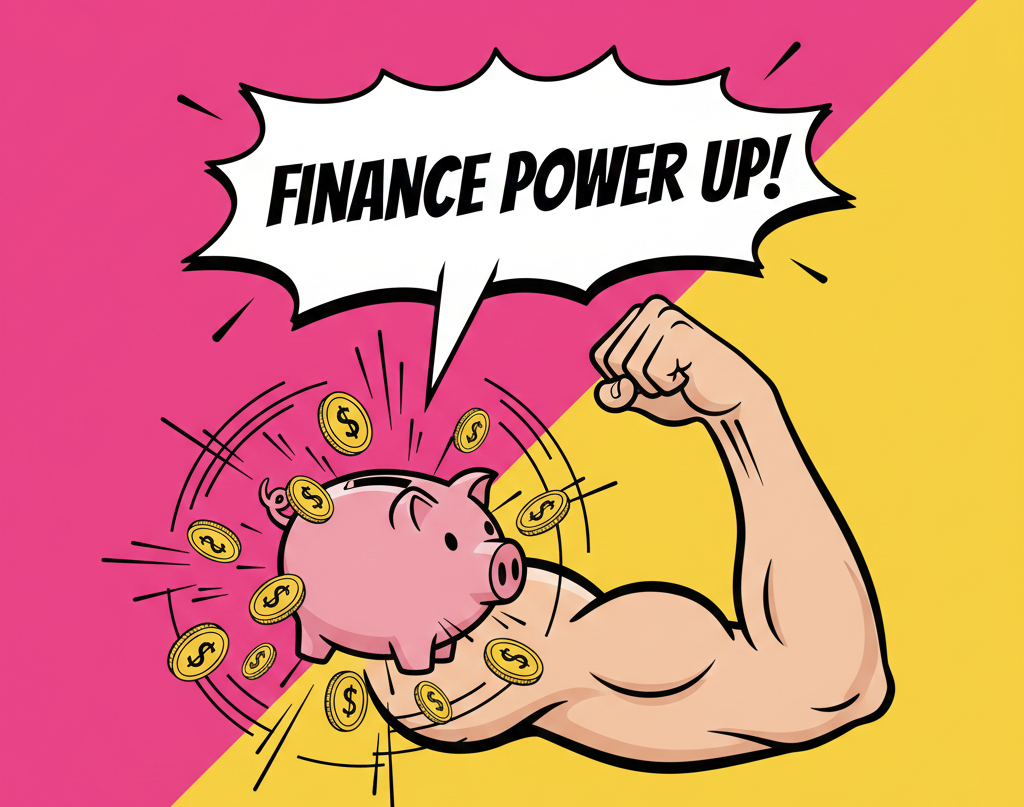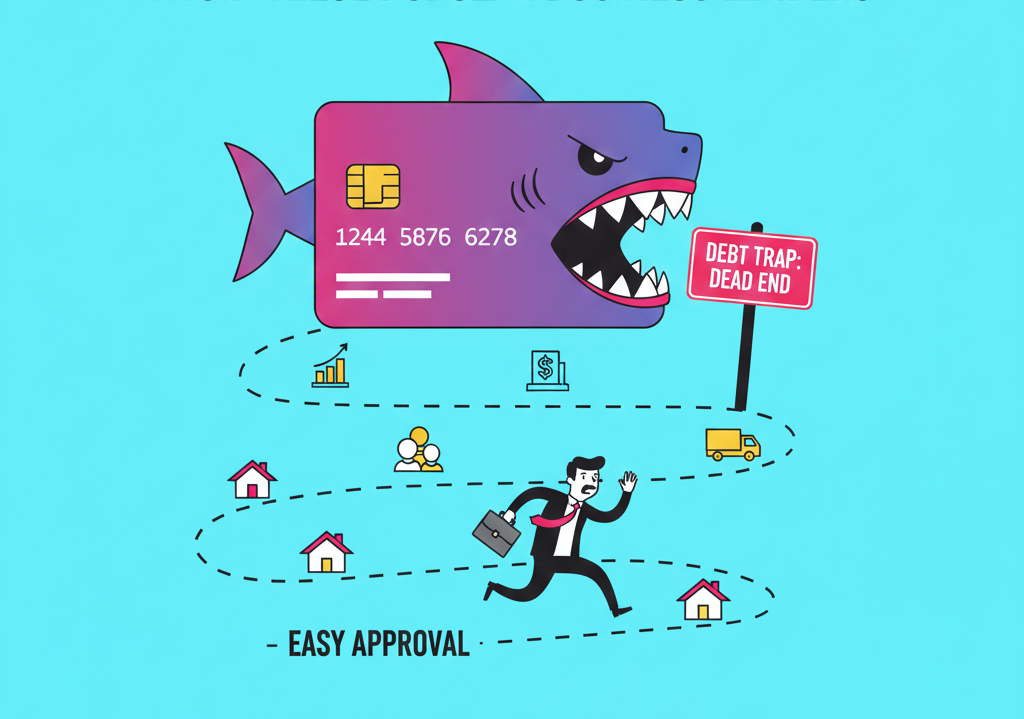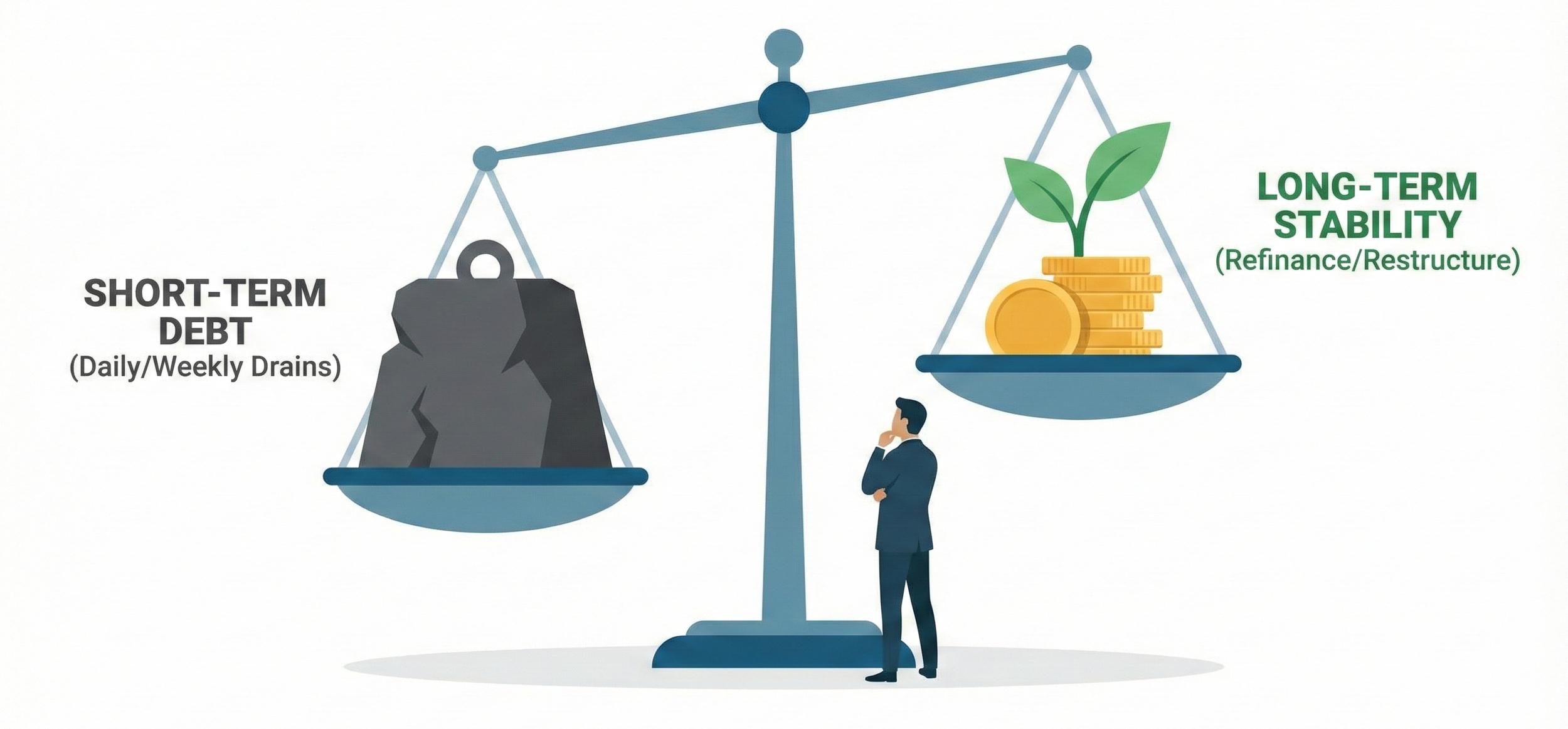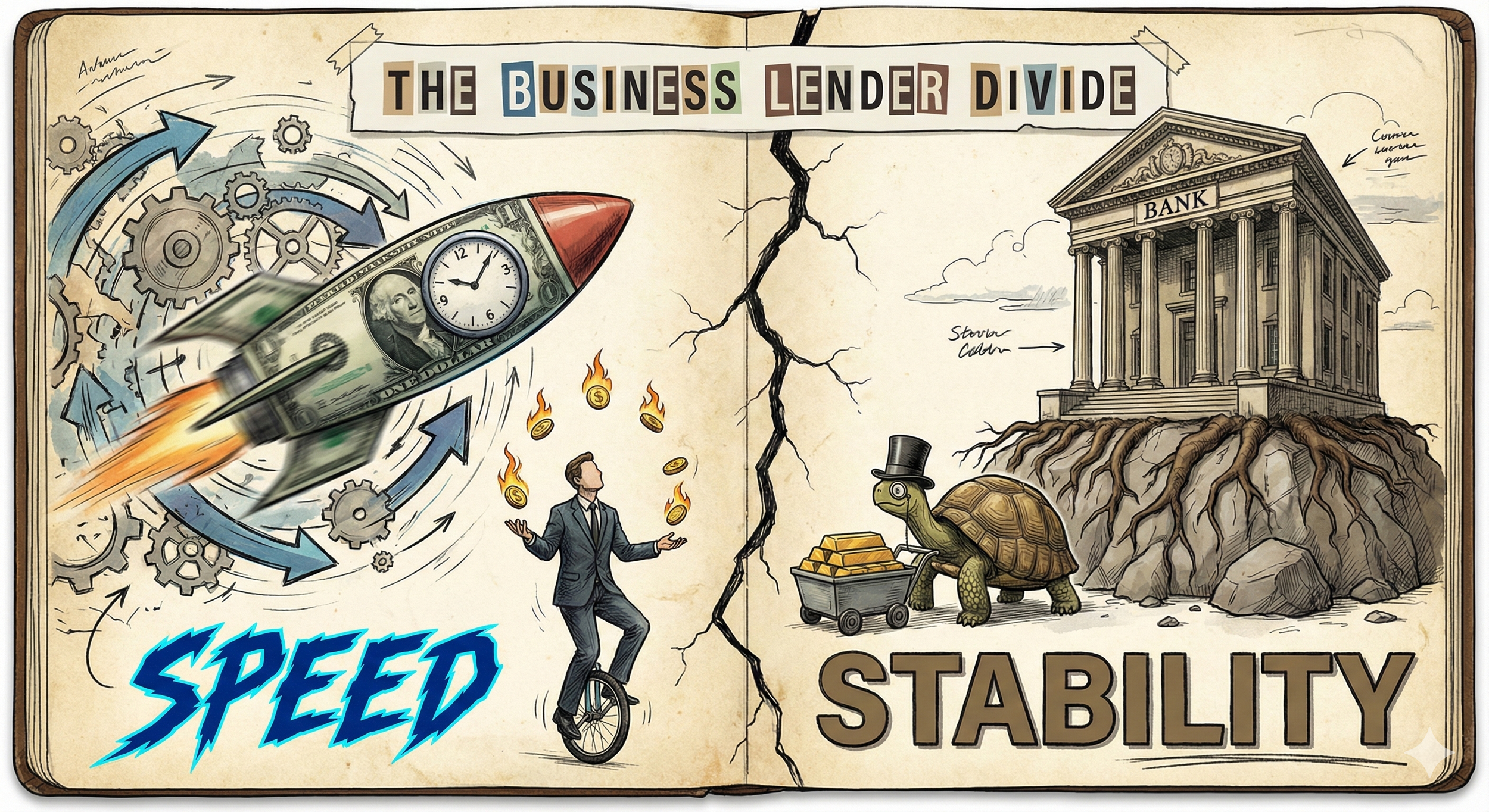Private business ownership is a journey fueled by passion, resilience, and, often, a healthy dose of optimism.
This entrepreneurial spirit is vital, but when that optimism morphs into a passive reliance on "hope" for critical financial outcomes, it becomes a liability.
For owners facing a complex landscape of business financing, relying on wishful thinking can be the difference between securing the capital needed for growth and facing a catastrophic failure.
It is time to replace vague aspirations with concrete, verifiable strategies and robust due diligence, especially when engaging with external business financial advisors and transactional brokers.
The Illusion of Hope as a Business Strategy
Hope is a powerful motivator in life, but in the hard-edged world of business finance, it is a profoundly inadequate strategy. Many business owners, exhausted by the day-to-day demands of running their operations, can fall into the trap of simply hoping for a financial solution to materialize.
This manifests in several ways: hoping a struggling lender will approve a loan, hoping a potential refinancing partner will deliver on a vague promise, or hoping that market conditions will change just in time. This is not strategy; it is deferring action and accountability.
A genuine financial strategy involves a clear assessment of the company’s capital structure, a proactive identification of reputable business financing sources, and a detailed restructuring plan with measurable milestones.
If your primary approach to a looming business debt maturity or a necessary growth investment is a feeling of optimism, you are setting your business up for avoidable risk.
Real strategy requires due diligence, alternative plans, and commitment from both sides of a potential deal. Hope is a feeling; a financial strategy is an action plan.
Recognizing and Resisting the Bait and Switch
The desperation that often accompanies a need for business financing makes business owners particularly vulnerable to deceptive marketing tactics. One of the most prevalent and damaging is the bait and switch employed by some transactional brokers. These individuals often present an attractive, low-cost, or highly flexible financial product—the "bait"—that perfectly addresses the owner's immediate need. This initial offering, however, is frequently a phantom.
Once the owner is engaged, has shared sensitive financial information, and has invested time and energy, the broker suddenly pivots. The original, desirable product is deemed "unavailable" due to some unforeseen technicality or a new "risk assessment."
This is the "switch." The owner is then pressured to accept a replacement product—often a much more expensive, restrictive, or short-term solution—because they feel they have gone too far to turn back. They have invested emotional and intellectual capital into the process.
Smart business owners must recognize that a massive gap between an initial quote and the final offer is a giant red flag, a classic indicator of a bait and switch tactic designed to secure a commitment based on false premises.
The Peril of Transactional Business Financing
Not all brokers or financial advisors are the same. It is crucial to distinguish between a strategic financial advisor or established institutional intermediary and a purely transactional broker.
The latter often operates on a volume basis, prioritizing quick, short-term commissions over the client's long-term financial health. Their incentive structure rewards closing any deal, regardless of its suitability, often leading them to push inappropriate or overly expensive products. They often lack the deep relationships, due diligence capabilities, and long-term commitment of more established, advisory-focused firms.
Transactional brokers may overpromise to secure engagement, only to scramble to fit the client into an available, albeit unsuitable, product once their original, non-existent "bait" falls through. Their focus is solely on the immediate transaction.
Business owners must seek partners whose compensation is aligned with the successful, sustainable achievement of the client’s strategic goals, not merely the short-term closure of a deal. In the business financing world, look for evidence of an advisory, rather than purely transactional, relationship.
The Absolute Necessity of Reference Checks
The single most effective defense against the bait and switch and against unreliable financial partners is rigorous due diligence. Never rely solely on a transactional broker’s marketing materials, testimonials posted on their own website, or the impressive but generic language in their pitch. The most reliable and non-negotiable step is to demand and independently verify references.
Specifically, business owners must request the contact information for at least one, and preferably two, clients who have recently completed a similar transaction with the broker or advisor.
Crucially, speak directly to the client. Ask specific questions: Did the final product match the initial pitch? Did the deal close on the terms and timeline originally committed to? Were there any last-minute surprises or switches in the financing terms? Did they receive the initial loan amount? Did the interest rate change dramatically late in the process? Any reluctance or refusal to provide recent, verifiable client references should be an immediate dealbreaker. Trust is earned through performance and external validation, not self-promotion. This step is a non-negotiable safeguard in any significant business financial undertaking.
Underwriting is Not the Same as Hoping for Refinancing
This is perhaps the most critical distinction in the current business financing climate. Many business owners involved in a potential refinancing or significant capital raise cling to the hope that the deal is "going to happen" simply because they have had a few promising meetings or signed a non-binding letter of intent. This is the difference between a daydream and a definitive commitment.
Hoping for a refinance is a state of mind. Being in underwriting with a private credit fund who has committed to a transaction is a verifiable, concrete stage in the financing process.
When a deal is truly in underwriting with a committed, sophisticated lender, the following should be true:
● The lender has issued a detailed, binding term sheet, not a vague indication of interest.
● The business has provided a comprehensive data room, and the lender's team is actively reviewing the financials, legal documents, and operations.
● There are regular, specific updates regarding due diligence items.
● The fund has internal sign-off or a clear path to investment committee approval.
If you are merely waiting for a call, or relying on a broker’s assurances without verifiable, ongoing diligence steps from the actual capital provider, you are still in the hope phase, not the execution phase.
A true financial partner will manage this process transparently, demonstrating real action instead of delivering only vague promises.
The Danger of Passive Waiting
When hope replaces action, the business owner becomes a passive spectator in their own financial life. The consequences of this passive waiting can be devastating, especially in time-sensitive situations like business debt refinancing. Interest rates can shift, payback periods shorten up, market liquidity can dry up, or a company's financial performance can dip, all while the owner is passively waiting for a "hopeful" deal to materialize.
Active management requires constant pressure on the financial intermediary and the capital provider to demonstrate progress. It requires the business owner to maintain parallel discussions with alternative financing sources, even late into the process, as a safeguard.
Stop accepting excuses about delays and insist on concrete evidence of advancement, such as scheduled site visits, third-party appraisal orders, or definitive legal document drafting. Your role is not to simply wait; it is to actively monitor, demand transparency, and drive the process forward until the capital is in the bank. Passive waiting is a high-risk gamble.
Transitioning from "Hoping" to "Executing"
The mandate for all serious small business owners must be a fundamental shift from "hoping" to "executing." This shift is psychological and operational.
To transition from hope to execution, you must:
● Demand specificity: Refuse to accept vague timelines or non-committal language. Insist on a clear, step-by-step process with defined responsibilities and deadlines.
● Verify all parties: Independently confirm the credentials, track record, and specific transaction experience of all intermediaries and capital providers.
● Establish parallel paths: Never rely on a single financing source, especially early in the process. Maintain at least two viable options until one is demonstrably committed and moving toward close.
● Focus on the funder, not the broker: Inquire directly about the specific underwriting criteria of the capital provider (the private credit fund or commercial bank) and ensure the broker’s or advisor’s pitch aligns perfectly with those known requirements.
● Measure progress by milestones: Do not measure progress by how good you feel about the conversation; measure it by completed, verifiable milestones like the issuance of a binding commitment letter or the formal commencement of third-party due diligence reports.
Execution is the result of deliberate action, not optimistic feelings.
Aligning with True Executors, Not Just Promisers
The financial services marketplace is saturated with individuals who are excellent at selling the idea of a deal but incapable of executing the reality. Small business owners need to surround themselves with partners who are proven executors. These are the individuals and firms whose track record demonstrates a consistent ability to secure and deliver the financing on the terms initially proposed, avoiding the bait and switch.
Look for firms that focus on value-added advisory and demonstrable access to private and institutional capital, not just mass-market lead generation. True partners will tell you honestly if your deal is a fit for their capital sources, rather than promising everything to secure your business and then trying to fit your square peg into a round hole later.
Their reputation in the market will speak for itself, backed up by the verifiable references of satisfied, recently closed clients. The commitment to a transparent and verifiable process is the hallmark of an executor.
The Non-Negotiable Principle: Do Not Accept the Switch
The ultimate test of a business financial intermediary is their integrity when the transaction hits a snag. A common maneuver by bait-and-switch artists is to present the "switch" product as the owner’s only remaining option, claiming that rejecting it means the entire effort was a waste and the company will face imminent crisis. This is a pressure tactic, and small business owners must be prepared to walk away.
Your time is valuable, but your company’s financial stability is priceless. If the final financing terms deviate significantly from the terms you initially agreed upon, especially regarding cost, collateral, or restrictive covenants, you must pause.
Do not be intimidated into accepting a vastly inferior product simply because you have invested a few weeks into the process. The cost of a bad financing decision will far outweigh the cost of starting over with a reputable advisor. Hold the line, demand the product you were promised, and if the promised product is truly unavailable, disengage and seek an honest partner. Your business deserves a solid, committed financial foundation, not one built on hopeful illusions and compromised terms.
What is the Best Way to Deal with Business Debt Payments that are causing Business Cash Flow issues?
It is NOT by stopping ACH payments.
It is NOT by taking on another business loan.
It is NOT ALWAYS a Refinancing
It is NOT by entering into a debt settlement program.
Find out the BEST strategies to get your Business back to where it was






























